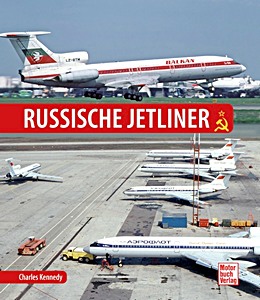Russische Jetliner
Die ehemalige Sowjetunion war das flächenmäßig größte Land der Erde und erstreckte sich über sieben Zeitzonen. Zur verkehrstechnischen Erschließung dieses Riesenreichs entstanden nach dem Zweiten Weltkrieg meist sehr robuste und erfolgreiche Düsenverkehrsflugzeuge, die ihren Gegenparts aus Europa und den USA leistungsmäßig in nichts nachstanden.

Dieser Band stellt alle russischen Jetliner von den Anfängen bis heute umfangreich bebildert vor: Airline-Bemalungen, Fotos von Kabinen-Ausstattungen und Cockpits sowie zeitgenössische Flughafen-Szenen nehmen den Leser mit auf eine spannende und faszinierende Reise gen Osten.
Details
| Autor: | Charles Kennedy |
|---|---|
| Ausführung: | 176 Seiten, 27 x 23 x 1.8 cm, gebunden |
| Abbildungen: | 250 farbige und s/w-Abbildungen |
| Verlag: | Motorbuch Verlag (D, 2022) |
| ISBN: | 9783613044579 |











